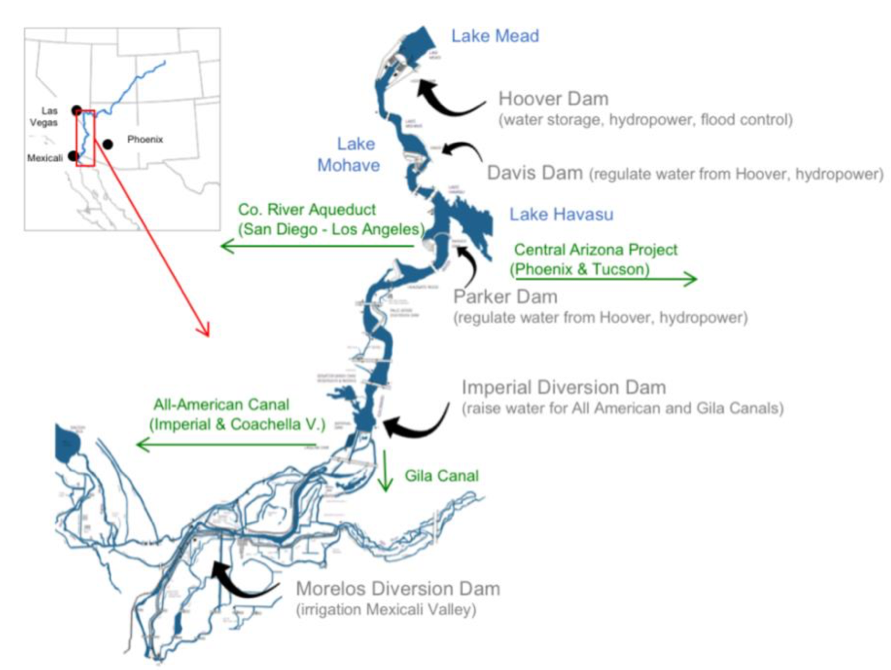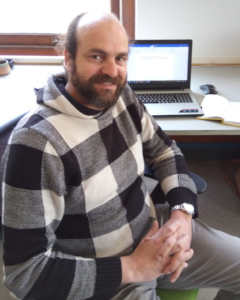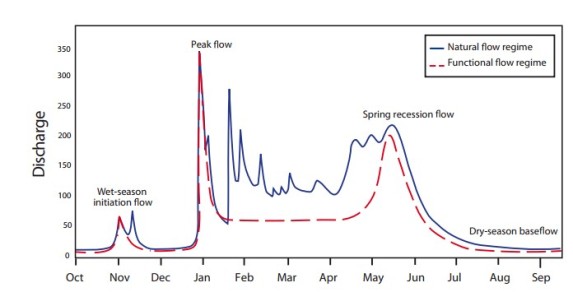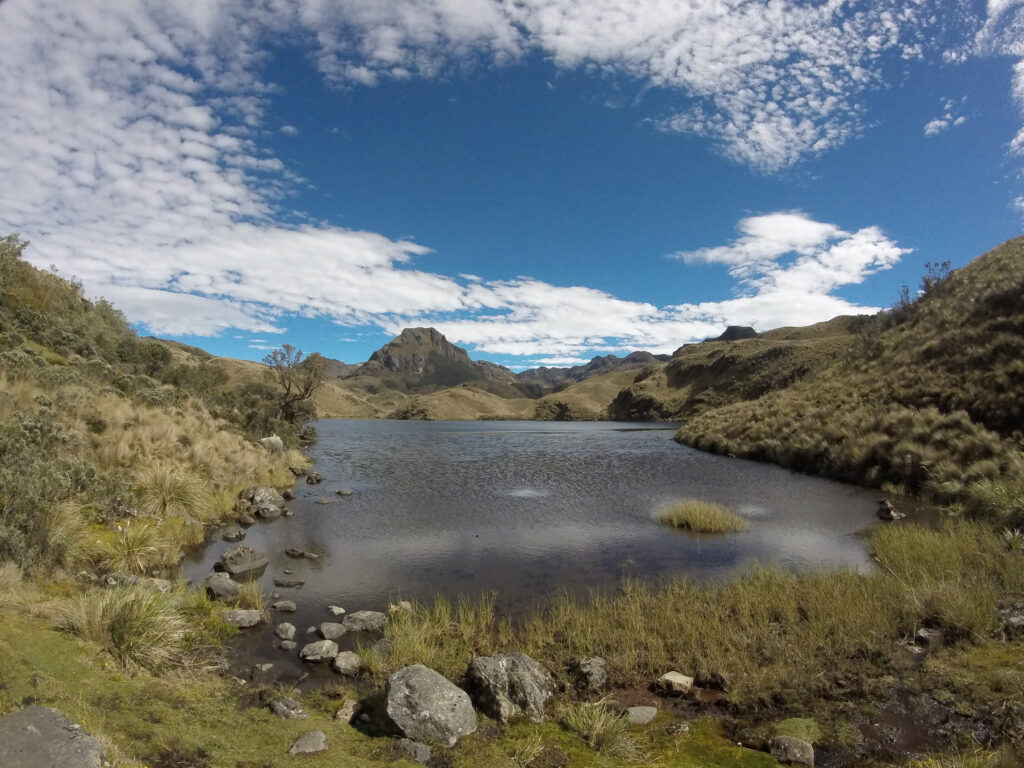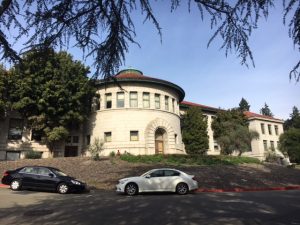I am Tongbi Tu, a new postdoc in the lab. I am working on a SESYNC Pursuit to study causal pathways and feedbacks within complex water management systems. This project integrates ecology, hydrology, and water law. The interdisciplinary team is composed of Sankar Arumugam (NCSU), Xiaoli Dong (UC Davis), Caitlin Dyckman (Clemson Univ.), Ted Grantham (UC Berkeley), Lars Olson (Univ. of Maryland), Benjamin Ruddell (Northern Arizona Univ.), Nicola Ulibarri (UC Irvine), and Albert Ruhi (UC Berkeley).
In this working group we will apply physically-based and time-series models to investigate how reservoirs can help provide engineered resilience to socio-environmental systems–especially during periods of drought. We will use a variety of approaches to detect direct and indirect causal pathways and feedbacks between hydrologic conditions, human uses, and downstream ecological outcomes in the Lower Colorado River basin. A better understanding of the complex dynamics of water systems can help advance sustainable freshwater management–a critical need in the face of increasing competition for scarce freshwater resources.
